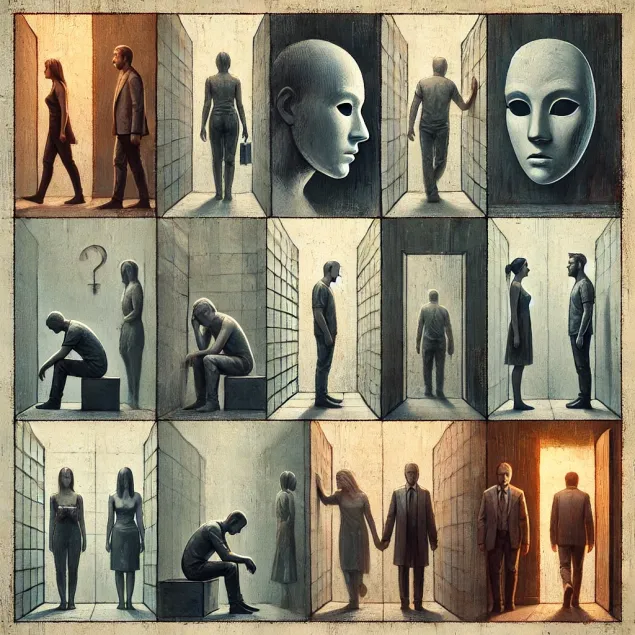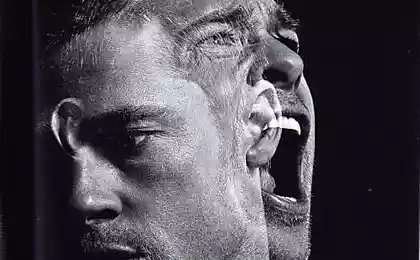200
15 Behaviours You Follow Because You're Not Happy With Your Relationship

We often don’t realize that our behavior can be a reaction to problems in our relationships. Even if we are not willing to admit to ourselves that something is wrong, our actions, words, and even silence can be a reflection of hidden discontent. Most often, these behaviors are not associated with relationships, but in fact they are an important signal that is worth hearing. In this article, we’ll look at 15 behaviors that may be a sign that you’re not entirely satisfied with your current relationship.
1. Constant criticism of the partner
If you are constantly criticizing your partner, you may be expressing discontent that you cannot express directly. Criticism can be a way to guard against pain or alienation, but it rarely helps in solving a problem. On the contrary, it can deepen the gap between you.

2. Emotional suspension
When you start distancing yourself from your partner without discussing it with them, it can be a sign that you’re unhappy with the relationship but not ready to talk about it. This behavior often leads to emotional cooling.
3. Excessive independence
If you’re trying to be too independent to let your partner interfere in your life, it may be a reaction to not feeling close or supported. Excessive autonomy can be a defensive response to discontent.
4. Frequent disputes over trifles
When a relationship is strained, any petty discontent can turn into an argument. Constantly arguing about minor things can be an indicator that there are deeper issues in a relationship that are not directly addressed.
5. Lack of sexual activity
Dissatisfaction in relationships often manifests itself in a lack of intimacy. If you avoid intimacy or experience discomfort in the intimate sphere, this may be due to emotional distance and dissatisfaction with the relationship.
6. Neglecting time with your partner
When you avoid spending time with a partner or are not interested in sharing activities, it can be a signal that you are no longer satisfied with the relationship. This can happen unconsciously, but over time leads to alienation.
7. Idealizing Other People Too Much
If you often admire other people, including those who are unrelated to your relationship, you may not be getting what you expect from your partner. Idealizing others can be a way to compensate for the shortcomings of the current relationship.

8. Accusations against partner
When you start blaming your partner for all the problems in the relationship, it can be a way to shift responsibility. In fact, it may be a manifestation that you are dissatisfied but can’t acknowledge your part in the problems.
9. Constant comparison with the past
If you often compare your partner to exes or ideas you’ve had before, it may indicate dissatisfaction with your current relationship. Constant comparisons undermine trust and create tension.
10. Dissatisfaction with the appearance of the partner
Criticizing your partner’s appearance can hide a deeper dissatisfaction with the relationship. Sometimes we unknowingly redirect our frustration to our appearance rather than admitting emotional problems in our relationships.
11. Finding excuses for leaving
When you start looking for reasons to leave or end a relationship, it can be a reaction to not being satisfied with your current state of affairs. Finding excuses can be a way to avoid the pain of a breakup.
12. Permanent employment
When you’re too busy with work or other activities to devote time to your partner, it can be a way to avoid emotional intimacy. This behavior often occurs when a person wants to distance themselves from a relationship without acknowledging it.
13. Procrastination in problem solving
If you put off resolving problems or discussing important issues in a relationship, it may indicate your dissatisfaction that you do not want or are afraid to discuss. Procrastination often occurs when a person avoids unpleasant topics.
14. Habit of hiding feelings
If you often hide your true feelings and emotions, it can be a way to avoid confrontation or pain. However, the constant suppression of emotions can lead to the fact that the relationship will deteriorate and discontent will accumulate.
15. Difficulties in making decisions together
If you find it difficult to make decisions together, whether it’s financial matters or plans for the future, it may be a reflection that you don’t feel confident in the relationship. Problems with decision-making can indicate a loss of trust and connection.
Conclusion
It is impossible to fix problems in a relationship if you are not aware of them. Sometimes our behavior is a hidden reflection of what’s wrong in a relationship. Recognizing these signs and openly discussing problems with your partner are important steps towards restoring harmony and trust.























